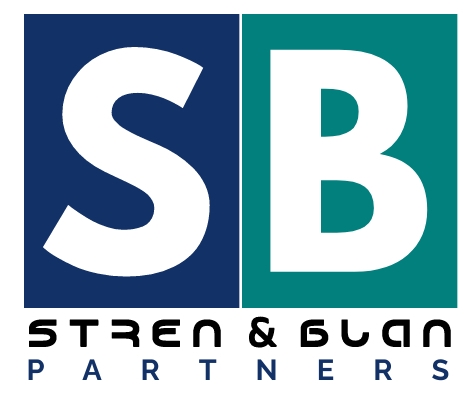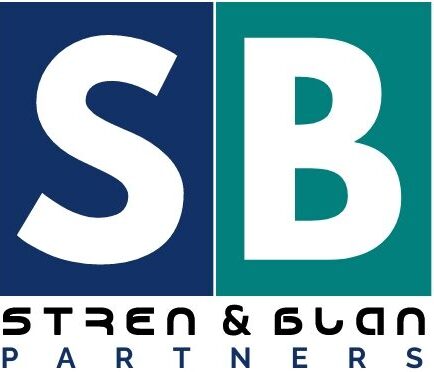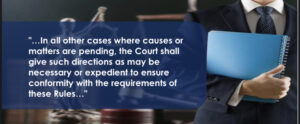1.1On the 31st of May 2022, the President of the National Industrial Court of Nigeria (NICN), Hon. Justice B.B. KanyipPh.D issued the National Industrial Court of Nigeria (Filling of Applications/Motions in Trade Union Matters and Marking of Exhibits) Practice Direction (No. 1) 2022 (“the Practice Direction”). This was made pursuant to the powers conferred on the Honourable President of the NICN in Section 254F (1) of the Constitution of the Federal Republic of Nigeria 1999 (as amended) which provides thus:
“Subject to the provisions of any Act of the National Assembly, the President of the National Industrial Court may make rules for regulating the practice and procedure of the National Industrial Court.”
1.2In similar vein, Order 1 Rule 8(2) & (3) of the National Industrial Court (Civil Procedure) Rules 2017 (‘the NICN Rules”) provides that:
“(2) In all other cases where causes or matters are pending, the Court shall give such directions as may be necessary or expedient to ensure conformity with the requirements of these Rules.
(3) The President of the Court may give practice directions, for the effective implementation of these Rules.”
1.3The Practice Direction which became effective on Monday, 13th June, 2022 was issued with a view to guarantee continued access to justice and expeditious disposal of cases.Though, the Practice Direction is commendable and appears to be well thought out, it has generated mixed reactions from the populace, with some even calling for its review, on the basis that some of its provisions conflict with extant laws and that the attendant penalties for non-compliance are harsh.
1.4 This article takes an overview of the Practice Direction in order to analyze the key innovations.
2 The Key Provisions of The Practice Direction
2.1The Practice Direction sets out the procedures that should be adopted in two matters, namely (a) the filing of applications and motions in trade union matters and (b) the marking of documents/exhibits in any matter at the (NICN or the Court). The procedures are:
3 Issues arising from the Practice Direction
3.1One of the provisions of the Practice Direction that hascaused serious debate is Paragraph 3(1) which mandatorily requires that all actions relating to the conduct of trade union elections or that seeks for a restraining order against holding of delegates’ conference of a trade union must be commenced in Abuja or Lagos Judicial Divisions.
3.2Undoubtedly, this is in total conflict with the provisions of some of the delegating legislations under which a claimant has the liberty of instituting all matters (including all trade union restraint actions) in a division that is closest to the defendants. Order 2 Rules 1 – 17 of the National Industrial Court Nigeria Rules for example is to the effect that all matters may be filed in any of the judicial divisions of the Court where a trade union has presence.
3.3 It provides as follows:
“Subject to the provisions of the Act on transfer of suits, an originating process in respect of a matter in which the Court has jurisdiction shall be filed in any Registry of the Court nearest to where the defendant or respondent resides or has presence or in which the defendant or respondent carries on business. Provided that where economic, security, environmental or other exigencies warrant, an originating process may be filed in the Court’s Registry in a Judicial Division other than that closest to the place of residence or business of the defendant(s) or respondent(s).”
3.4 By nature, Practice Directions are mere guidelines issued by Judges on how specific procedures and formalities should be followed in different Courts. While they are issued to inform parties what the Court expects of them in respect of the practice and procedure of the Courts, it is important that theycomplement the rules of such Courts.
3.5 As a delegated or subsidiary legislation made pursuant to the power granted by the Principal Legislation. the Supreme Court of Nigeria in Buhari v. INEC, clearly sare the practice of the Court in a particular area of its procedure. Hence to be valid, a Practice Direction must be made in accordance with the delegating power as was held in FBIR v. Halliburton (WA) LTD.
3.6 Ideally, the best purpose a Practice Direction can serve is to provide a written explanation of how to proceed in a particular area of law, in a particular court. there is a conflict between the Rules of Court and Practice Directions, the Rules must of necessity prevail, as the Practice Direction cannot amend the Rules of Court. As held by the court in UNILAG v.Aigoro,a Practice Direction has no power to introduce a new provision not contained in the Rules; it cannot introduce a provision inconsistent with the Rules or any Law and cannot give provisions or explanations on a new subject not contemplated by the Rules or other existing Law.
3.7 The Supreme Court has also reiterated this in plethora of cases including the case of University of Lagos & Anor v. Aigoro where it held that Rules of Court and Practice Directions are rules touching the administration of Justice and they are established mainly for attaining justice with ease, certainty, and dispatch.
3.8 It is no news that the National Industrial Court of Nigeria is one Court whose jurisdiction covers the entire country, and its judicial divisions are solely for administrative convenience. Restricting litigants whose causes of action are specifically highlighted therefore amounts to taking away the territorial jurisdiction of the Court sitting in divisions other than Lagos and Abuja on any trade union matter especially, where such could have been conveniently adjudicated upon in courts in other divisions, as the defendant or respondent resides or has presence or carries on business in the other divisions. Also, itcompletely defeats the purpose of the Practice Direction which is to ensure speedy and efficient administration of justice. One wonders, how the Lagos and Abuja Divisions of the NICN will cope when inundated with urgent matters bordering on trade union elections and delegate conferences.
3.9 On the issue of penalty for default. the Practice Direction with a view to ensuring maximum compliancedirected that such process shall not be accepted for filing and where it is accepted by the registry, If the process is from the claimant, the entire suit shall be struck out, but where the processes are from the defendant, then the particular defectiveprocess shall be struck out.
3.10 On this particular provision, one school of thought has it that strict adherence to the provisions of the Practice Direction will only place technicalities over substantive justice. They posit that the judiciary is not a dummy arbiter, meant merely to reel out what is written in the legislative codification. Rather they are to give a professional interpretation to the letters of laws, that is, by juxtaposing the facts in factual sense with the letters of laws, solely, for the attainment of justice.
3.11 The Court of Appeal in Benedict Orji v. Ozo NneIlloputaife & Ors, defined technicality to mean “immaterial, not affecting the substantial rights, without substance.” Thus, any matter that does not stress on the substantive right of a party should be viewed as technicalities.
3.12 In the same vein, in Salawu Ajide v. Kadiri Kelani, the Supreme Court per Oputa J.S.C. while emphasizing on the need for truth to prevail in order to ensure justice is done poignantly,cautioned that;
“Justice is much more than a game of hide and seek. It is an attempt to discover the truth, on human imperfections, notwithstanding. Justice will never decree anything in favour of so slippery a customer as the present defendant/appellant” on this note, our courts have admitted that justice and truth are on the same ticket and that in doing justice the courts and all ministers in her temple, that is lawyers and all other stakeholders, must strive at discovering the truth regardless of legal technicalities.”
3.13 Many have even suggested alternative penalties which includes that the Court should discountenance the documents not attached and frontloaded or entertain and grant an application seeking to attach and frontload documents omitted during the filing of the suit for one reason or another.
3.14 This school of thought surmise that although thePractice Directions requirements are quite practicable and they are understandably needed for efficient trial management so as to eliminate the wastage of precious judicial time in dealing with frivolous objections or the waste of time in going through a pile of documents that are irrelevant and have no impact on the fact(s) in issue, it will be out of place for justice to be denied or delayed on flimsy reasons such as failure to mark documents or make reference to such.
3.15 Another school of thought, clearly represented in the most recent decision of National Industrial Court of Nigeria per Hon. Justice Nweneke in Suit No. NICN/LA/266/2022between ABOLADE JOHN OLAWALE v. EKO ELECTRICITY DISTRIBUTION PLC (EKEDP) (Ruling delivered on 20th October 2022) while striking out the Suit for non-compliance with the provisions of the Practice Direction held thus:
“That the argument that the goal of the Practice Direction is to always do substantial justice rather than technical justice, and that striking out a case for non-compliance with the Practice Direction amounts to technical justice, will not avail the Claimant/Respondent in this instance.
The very concept of substantial justice will lose its worth if viewed from the prism of the Claimant alone. Substantial justice is justice itself and it is trite that justice is not a one-way traffic. In RESIDENT OFIOGUMA & ANOR v. FREDRICCK ERHIRE IBUJE & ANOR [2022] LPELR-58394[CA] 48, the Court of Appeal, per Danjuma, JCA, while emphasising on the importance of this point, posits that;
‘Justice is a four-way traffic, justice for the parties in the suit, justice for the Court and justice for the public at large.‘
It is in the interest of the parties, the Court and society that litigation becomes as seamless and as speedy as possible. A practice direction which ensures quick dispensation of justice cannot be denigrated as mere technicality. The Court of Appeal in the case of COOPERATIVE AND COMMERCE BANK [NIG.] PLC v. OGOCHUKWU OKPALA & ANOR [1997] LPELR-6278[CA] 26, admonished that;
‘Courts are enjoined to bear in mind that the business of the Court must be conducted within the framework of the law, the practice and procedure that have inured over the ages, and counsel, as an officer of the Court must assist the Court in reaching a reasonable decision on any matter before the Court.’
3.16The Supreme Court in this regard has in the case of PEOPLES’ DEMOCRATIC PARTY (PDP) v. INDEPENDENT NATIONAL ELECTORAL COMMISSION (INEC) (2012) 7 NWLR (Pt. 1300) 538 (SC), held that:
“Where Practice Directions as issued co-exist harmoniously with the rules of court, a party or Counsel who ignores them does so at his peril”.
4. Conclusion
4.1In conclusion, the Practice Direction is issued in good light and compliance with same will ensure speedy dispensation of cases and reduce clog in the wheel of justice. While we acknowledge the cry for review of some of its provisions, we hope that parties, counsel and court will first give life to the Practice Direction by complying and ensuring that it is enforced;otherwise, the very essence of issuing it would be defeated.
Who We Are
Stren and Blan Partners (formerly Bridgeforte Attorneys) is an innovative and dynamic law firm with a compelling blend of experienced lawyers and energetic talents. Our lawyers are available to provide you with guidance and innovative solutions on complex business and legal issues across a variety of sectors.
This is a publication of Stren and Blan Partners and it is for general information only. It should not be construed as legal advice under any circumstances. For more information about the firm and its practice areas, please visit www.strenandblan.com.You can also contact us via contact@strenandblan.com or call +234 (0) 7025580053.
Contributories
Team Lead, Tax, Construction and Industrial Relations
marvisoduogu@strenandblan.com
Associate, Tax, Regulatory and Industrial Relations
adenikeoguntoye@strenandblan.com
OVERVIEW OF THE NEW NICN PRACTICE DIRECTION 2022


